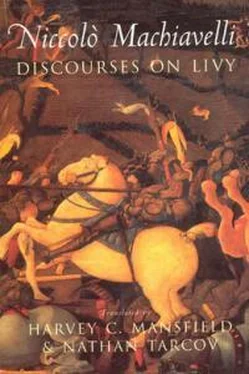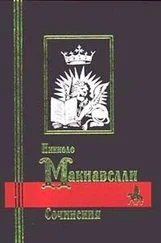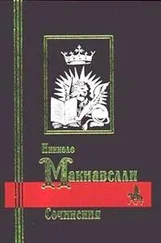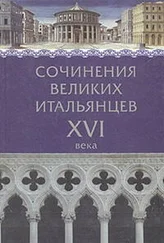Николо Макиавелли - Discourses on Livy
Здесь есть возможность читать онлайн «Николо Макиавелли - Discourses on Livy» весь текст электронной книги совершенно бесплатно (целиком полную версию без сокращений). В некоторых случаях можно слушать аудио, скачать через торрент в формате fb2 и присутствует краткое содержание. Год выпуска: 2014, Издательство: epubBooks Classics, Жанр: История, Философия, на английском языке. Описание произведения, (предисловие) а так же отзывы посетителей доступны на портале библиотеки ЛибКат.
- Название:Discourses on Livy
- Автор:
- Издательство:epubBooks Classics
- Жанр:
- Год:2014
- ISBN:нет данных
- Рейтинг книги:5 / 5. Голосов: 1
-
Избранное:Добавить в избранное
- Отзывы:
-
Ваша оценка:
- 100
- 1
- 2
- 3
- 4
- 5
Discourses on Livy: краткое содержание, описание и аннотация
Предлагаем к чтению аннотацию, описание, краткое содержание или предисловие (зависит от того, что написал сам автор книги «Discourses on Livy»). Если вы не нашли необходимую информацию о книге — напишите в комментариях, мы постараемся отыскать её.
Discourses on Livy — читать онлайн бесплатно полную книгу (весь текст) целиком
Ниже представлен текст книги, разбитый по страницам. Система сохранения места последней прочитанной страницы, позволяет с удобством читать онлайн бесплатно книгу «Discourses on Livy», без необходимости каждый раз заново искать на чём Вы остановились. Поставьте закладку, и сможете в любой момент перейти на страницу, на которой закончили чтение.
Интервал:
Закладка:
Chapter V
Whether the Guardianship of Public Freedom is Safer in the Hands of the Commons or of the Nobles; and Whether Those Who Seek to Acquire Power or They Who Seek to Maintain It Are the Greater Cause of Commotions.
Of the provisions made by wise founders of republics, one of the most necessary is for the creation of a guardianship of liberty; for according as this is placed in good or bad hands, the freedom of the State will be more or less lasting. And because in every republic we find the two parties of nobles and commons, the question arises, to which of these two this guardianship can most safely be entrusted. Among the Lacedæmonians of old, as now with the Venetians, it was placed in the hands of the nobles, but with the Romans it was vested in the commons. We have, therefore, to determine which of these States made the wiser choice. If we look to reasons, something is to be said on both sides of the question; though were we to look to results, we should have to pronounce in favour of the nobles, inasmuch as the liberty of Sparta and Venice has had a longer life than that of Rome.
As touching reasons, it may be pleaded for the Roman method, that they are most fit to have charge of a thing, who least desire to pervert it to their own ends. And, doubtless, if we examine the aims which the nobles and the commons respectively set before them, we shall find in the former a great desire to dominate, in the latter merely a desire not to be dominated over, and hence a greater attachment to freedom, since they have less to gain than the others by destroying it. Wherefore, when the commons are put forward as the defenders of liberty, they may be expected to take better care of it, and, as they have no desire to tamper with it themselves, to be less apt to suffer others to do so.
On the other hand, he who defends the method followed by the Spartans and Venetians, may urge, that by confiding this guardianship to the nobles, two desirable ends are served: first, that from being allowed to retain in their own hands a weapon which makes them the stronger party in the State, the ambition of this class is more fully satisfied; and, second, that an authority is withdrawn from the unstable multitude which as used by them is likely to lead to endless disputes and tumults, and to drive the nobles into dangerous and desperate courses. In instance whereof might be cited the case of Rome itself, wherein the tribunes of the people being vested with this authority, not content to have one consul a plebeian, insisted on having both; and afterwards laid claim to the censorship, the prætorship and all the other magistracies in the city. Nor was this enough for them, but, carried away by the same factious spirit, they began after a time to pay court to such men as they thought able to attack the nobility, and so gave occasion to the rise of Marius and the overthrow of Rome.
Wherefore one who weighs both sides of the question well, might hesitate which party he should choose as the guardian of public liberty, being uncertain which class is more mischievous in a commonwealth, that which would acquire what it has not, or that which would keep the authority which it has already. But, on the whole, on a careful balance of arguments we may sum up thus:—Either we have to deal with a republic eager like Rome to extend its power, or with one content merely to maintain itself; in the former case it is necessary to do in all things as Rome did; in the latter, for the reasons and in the manner to be shown in the following Chapter, we may imitate Venice and Sparta.
But reverting to the question which class of citizens is more mischievous in a republic, those who seek to acquire or those who fear to lose what they have acquired already, I note that when Marcus Menenius and Marcus Fulvius, both of them men of plebeian birth, were made the one dictator, the other master of the knights, that they might inquire into certain plots against Rome contrived in Capua, they had at the same time authority given them by the people to investigate whether, in Rome itself, irregular and corrupt practices had been used to obtain the consulship and other honours of the city. The nobles suspecting that the powers thus conferred were to be turned against them, everywhere gave out that if honours had been sought by any by irregular and unworthy means, it was not by them, but by the plebeians, who, with neither birth nor merit to recommend them, had need to resort to corruption. And more particularly they accused the dictator himself. And so telling was the effect of these charges, that Menenius, after haranguing the people and complaining to them of the calumnies circulated against him, laid down his dictatorship, and submitted himself to whatever judgment might be passed upon him. When his cause came to be tried he was acquitted; but at the hearing it was much debated, whether he who would retain power or he who would acquire it, is the more dangerous citizen; the desires of both being likely to lead to the greatest disorders.
Nevertheless, I believe that, as a rule, disorders are more commonly occasioned by those seeking to preserve power, because in them the fear of loss breeds the same passions as are felt by those seeking to acquire; since men never think they hold what they have securely, unless when they are gaining something new from others. It is also to be said that their position enables them to operate changes with less effort and greater efficacy. Further, it may be added, that their corrupt and insolent behaviour inflames the minds of those who have nothing, with the desire to have; either for the sake of punishing their adversaries by despoiling them, or to obtain for themselves a share of those riches and honours which they see the others abuse.
Chapter VI
Whether It Was Possible in Rome to Contrive Such a Government as Would Have Composed the Differences Between the Commons and the Senate.
I have spoken above of the effects produced in Rome by the controversies between the commons and the senate. Now, as these lasted down to the time of the Gracchi, when they brought about the overthrow of freedom, some may think it matter for regret that Rome should not have achieved the great things she did, without being torn by such disputes. Wherefore, it seems to me worth while to consider whether the government of Rome could ever have been constituted in such a way as to prevent like controversies.
In making this inquiry we must first look to those republics which have enjoyed freedom for a great while, undisturbed by any violent contentions or tumults, and see what their government was, and whether it would have been possible to introduce it into Rome. Of such republics we have an example in ancient times in Sparta, in modern times in Venice, of both which States I have already made mention. Sparta created for herself a government consisting of a king and a limited senate. Venice has made no distinction in the titles of her rulers, all qualified to take part in her government being classed under the one designation of "Gentlemen," an arrangement due rather to chance than to the foresight of those who gave this State its constitution. For many persons, from causes already noticed, seeking shelter on these rocks on which Venice now stands, after they had so multiplied that if they were to continue to live together it became necessary for them to frame laws, established a form of government; and assembling often in their councils to consult for the interests of their city, when it seemed to them that their numbers were sufficient for political existence, they closed the entrance to civil rights against all who came afterwards to live there, not allowing them to take any part in the management of affairs. And when in course of time there came to be many citizens excluded from the government, to add to the importance of the governing body, they named these "Gentlemen" ( gentiluomini ), the others "Plebeians" ( popolani ). And this distinction could grow up and maintain itself without causing disturbance; for as at the time of its origin, whosoever then lived in Venice was made one of the governing body, none had reason to complain; while those who came to live there afterwards, finding the government in a completed form, had neither ground nor opportunity to object. No ground, because nothing was taken from them; and no opportunity, because those in authority kept them under control, and never employed them in affairs in which they could acquire importance. Besides which, they who came later to dwell in Venice were not so numerous as to destroy all proportion between the governors and the governed; the number of the "Gentlemen" being as great as, or greater than that of the "Plebeians." For these reasons, therefore, it was possible for Venice to make her constitution what it is, and to maintain it without divisions.
Читать дальшеИнтервал:
Закладка:
Похожие книги на «Discourses on Livy»
Представляем Вашему вниманию похожие книги на «Discourses on Livy» списком для выбора. Мы отобрали схожую по названию и смыслу литературу в надежде предоставить читателям больше вариантов отыскать новые, интересные, ещё непрочитанные произведения.
Обсуждение, отзывы о книге «Discourses on Livy» и просто собственные мнения читателей. Оставьте ваши комментарии, напишите, что Вы думаете о произведении, его смысле или главных героях. Укажите что конкретно понравилось, а что нет, и почему Вы так считаете.











